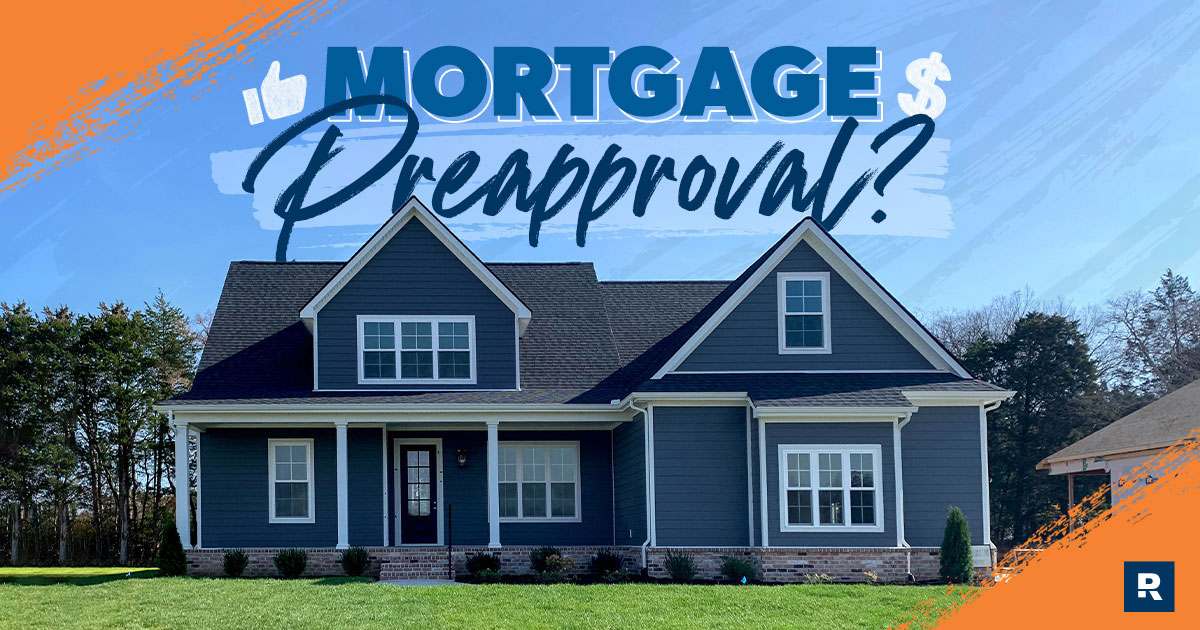What Is a Mortgage Pre-Approval?
9 Min Read | Sep 18, 2023

Many lenders claim that if you’re not pre-approved for a mortgage, you don’t stand a chance in the housing market. But what exactly does mortgage pre-approval mean? And will it really help you stand out from the battalion of buyers bombarding the real estate market?
Let’s break down the mortgage pre-approval process and find out!
- What is a mortgage pre-approval?
- Why would you want a mortgage pre-approval?
- Is a mortgage pre-approval the same as a pre-qualification?
- What do you need to get a mortgage pre-approval?
- How long does it take to get pre-approved?
- When should you get a mortgage pre-approval?
- Does the pre-approval expire?
- Does getting pre-approved commit you to anything?
- Do pre-approvals hurt your credit score?
- Is there anything better than a mortgage pre-approval?
1. What is a mortgage pre-approval?
Don’t be fooled: a mortgage pre-approval isn’t a promise that you’ll get a loan for the home you want to buy. A mortgage pre-approval only means a loan officer has looked at your finances—your income, debt, assets, and credit history—and determined how much money you can borrow, how much you could pay per month, and what your interest rate will be.
So, what’s so great about a mortgage pre-approval?
Once a lender has pre-approved you for a mortgage, you’ll get a letter you can then take to sellers. This letter shows sellers you’ve already started working with a lender, and that the lender is willing to work with you. It gives sellers peace of mind to know they won’t be wasting their time with someone who couldn’t afford their house in the first place.
2. Why would you want a mortgage pre-approval?
While a pre-approval doesn’t guarantee you’ll get a mortgage, being pre-approved does have some advantages. Here are three reasons you might want a mortgage pre-approval:
- It gives you confidence in your search. When you know how much mortgage you can afford, you can look for houses within your budget. That way, you won’t have to deal with the heartbreak of falling in love with a house only to discover you can’t afford it.
- It puts you on the fast track to closing. Because most of your information is in the lender’s system, a mortgage pre-approval accelerates the loan process once you make an offer.
- It establishes your credibility as a homebuyer. A mortgage pre-approval shows home sellers that you have your finances in check, that you’re serious about buying a house, and that you won’t be denied a mortgage if they decide to sell you their home.
3. Is a mortgage pre-approval the same as pre-qualification?
No! Mortgage pre-approval and pre-qualification are not interchangeable.
The difference is really in the depth of the lender’s research. In order to be pre-qualified, you report your income, debt and assets to your lender, and your lender—without questioning your numbers—tells you, "Based on the numbers you gave us, you may qualify for this much of a mortgage."
But those numbers don’t have to be accurate. If you bent the numbers—if you weren’t precise about your income, your tax returns, or your debt—a pre-qualification will only give you a rough estimate.
A mortgage pre-approval, on the other hand, is a thorough inquiry into your finances. A lender won’t simply ask how much income you make—you’ll have to prove it. Your lender will also pull your credit history, verify your income and assets, and assess your financial situation before they give you a mortgage pre-approval.
Get the right mortgage from a trusted lender.
Whether you’re buying or refinancing, you can trust Churchill Mortgage to help you choose the best mortgage with a locked-in rate.
4. What do you need to get a mortgage pre-approval?
Since the mortgage pre-approval process is so rigorous, you’ll need to bring a number of documents when you meet with your lender. Here’s what your lender will ask for:
Identification
Income
Assets
5. How long does it take to get pre-approved?
As long as you have all your documents ready, you should be able to get a mortgage pre-approval on the same day you visit your lender.
Dave Ramsey recommends one mortgage company. This one!
However, lots of debt, a history of previous foreclosures, and a low credit score can slow down the process. If any of these apply to you, the pre-approval process can be much longer—anywhere from a few days to several months—depending on the complexity of your finances.
The only way to speed up the process is to give your lender all the documents listed above. Don’t forget (or hide) anything!
6. When should you get a mortgage pre-approval?
Any good real estate agent will tell you that getting a pre-approved mortgage is one of the first steps in the home-buying journey. But where exactly does this step fall? Before you even think about going into debt over a house, you should have all of the following taken care of:
7. Does the pre-approval expire?
Yes! All mortgage pre-approval letters have an expiration date. Many things can change after you get pre-approved, such as your income, credit history, or even the interest rate. Because of this, your pre-approval normally lasts for 60 to 90 days. When the pre-approval expires, you’ll have to update your paper work to get a new one.
8. Does getting pre-approved commit you to anything?
A pre-approval letter doesn’t bind you to any lender. That being said, if you do decide to take out a mortgage through another lender, you’ll have to repeat the paper work. But if you take out a mortgage through the lender who issued you a mortgage pre-approval, they’ll have your paperwork on file, which will save you time when you’re closing on a house.
9. Do pre-approvals hurt your credit score?
Getting pre-approved for a mortgage—even by multiple lenders at once—won’t hurt your credit score. While it may knock off a few points, it won’t drop your score by a significant amount.
If you pay off your debt and live debt-free, eventually you’ll have no credit score! You might be asking, How will I get pre-approved if I don’t have a credit score?
Don’t worry! You can still buy a home even if you don’t have a credit score. You just need to work with a lender like Churchill Mortgage that still does manual underwriting, a process in which a lender reviews your loan application and determines if they can trust you to repay the loan.
Now, this doesn’t mean that just anyone can walk out with a home loan using manual underwriting. Specifically, you must:
- Put at least 20% down on your home.
- Choose a 15-year, fixed-rate conventional mortgage.
- Have a strong employment history and personal income to support the loan.
- Demonstrate 4–6 trade lines that span 18–24 months. These are just regularly recurring expenses such as rent, electric bills, water bills, cell phone bills, etc.
10. Is there anything better than a mortgage pre-approval?
With this competitive housing market, mortgage pre-approval letters have unfortunately started losing their authority. Most buyers have them, and in a multiple-offer situation, they just don’t have what it takes to make you stand out.
Fortunately for you, there’s something better!
If you want a true competitive advantage, Churchill Mortgage’s Certified Homebuyer program is a great option. When you become a certified homebuyer, you have all the advantages of a pre-approval like credibility as a homebuyer, confidence in your search, and an accelerated closing process.
But unlike with pre-approved mortgages that only involve a loan officer, your certified homebuyer application is reviewed by a mortgage underwriter—which is a huge advantage when you start shopping for houses! You’ll be able to close faster and have a leg up on other buyers who will probably have to wait for an underwriter to review their application.
Don’t sell yourself short with a standard pre-approval. Take your home-buying credentials to the next level today and get in touch with a Churchill Mortgage expert!


